The Dangers Of U.S. Military Intervention In Venezuela
American military intervention in Venezuela would make the situation in that country worse, not better.
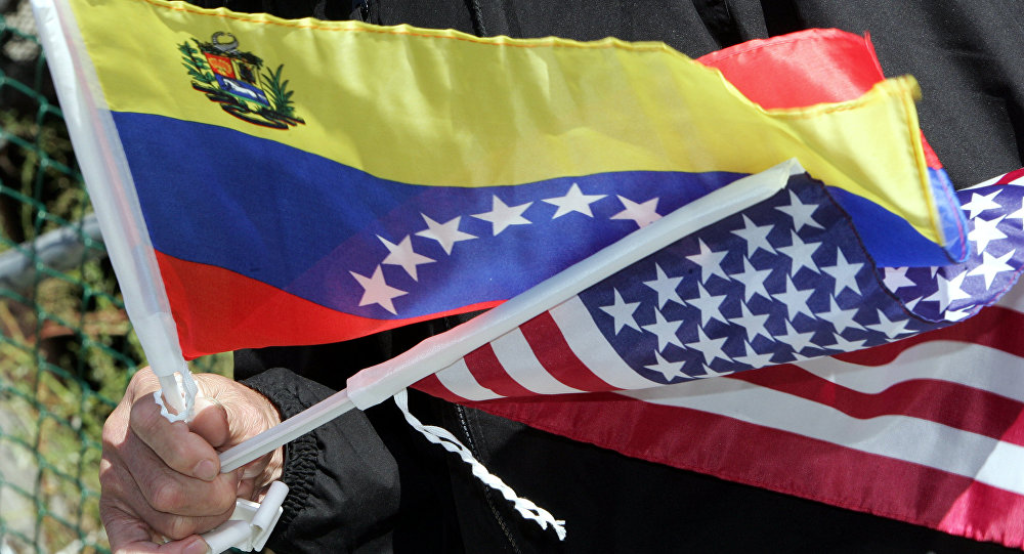
Writing in The Washington Post, Francisco Toro warns that American military intervention in Venezuela could make the situation far worse than it already is:
Here’s what Americans need to know about this prospect. Venezuela is, in many ways, a failed state. Much of the territory is lightly governed, if at all. The official Venezuelan state devotes the bulk of its time and energy to stealing the nation’s oil resources and repressing its political opponents, leaving little room to worry about the basics of governance.
As a result, vast swaths of Venezuela are controlled not by President Nicolás Maduro’s government but by a baffling proliferation of armed nonstate actors that include powerful prison gangs, Colombian guerrillas from the ELN or from splinter groups of the disbanded FARC, various ideologically infused “colectivos” — in effect, paramilitary groups subscribing to a vaguely Marxist ideology and allied with the government. These groups make a handsome living from any number of illegal activities: trafficking cocaine, illegal gold mining, extortion, human trafficking, smuggling — you name it.
Travel around Venezuela and you soon realize it’s these groups, and not the official Chavista state, who are effectively in charge of much of the territory. In many places, they live in a sort of uneasy, tacit alliance with the military — they buy weapons from them, passing on kickbacks and handling the dirty work the soldiers would rather not do.
The official armed forces, by contrast, are a mess. Obsessed with the specter of military plots, Maduro spends more time spying on his own troops than leading them. Cuban agents oversee the entire military establishment, running a counterintelligence force that systematically listens in on officers’ communications and will arrest and torture you at any sign of dissent. The actual soldiers, for their part, are mostly an afterthought: There’s often not quite enough to eat in mess halls, and conditions certainly impact readiness and morale. Training has been kept below the bare minimum for years, due to budget problems. It’s not much of a fighting force.
And yet, if the United States does go on the offensive, it’s clear it’s the Venezuelan military they’ll target first. Dysfunctional as it is, the armed forces have fixed installations — radar positions, air force bases, barracks — that could be targeted by a cruise-missile-guidance system.
The paramilitary gangs who actually control the territory, for their part, operate from civilian quarters. No U.S. military plan would be able to target them, even if it set out to do that.
Toro’s comments come at the same time that Venezuelan opposition leaders have begun calling for outside military intervention to oust Maduro and his regime. As Toro notes, though, such intervention is not guaranteed to be successful and, if it results in the ouster of Maduro and his cronies from power, it could result in the situation in Venezuela getting worse rather than getting better. Most likely, such an operation would be successful in ousting Maduro and significantly reducing the effectiveness of the Venezuelan military, but such a move seems likely to benefit the paramilitary gangs that Toro speaks of, who don’t have the kind of fixed positions that can be easily targeted by American and other forces. This means that the end result of military action against Maduro could end up being a situation where the national government is significantly weakened while these paramilitary groups hold on to their power and their territory and, indeed, expand their reach without effective opposition from the national government. This would mean that the end result of intervention could be a situation where Venezuela is plunged into an extended period of civil war not unlike what we saw in Iraq after the removal of Saddam Hussein and in Libya following the downfall of the Gaddafi regime.
This isn’t to say that Venezuela will end up becoming a terrorist breeding ground as Libya and Iraq became in the wake of U.S. intervention, but it does seem quite possible that the nation could be plunged into a civil war that would make the situation on the ground even worse than it is today, plunging the nation into a civil war not unlike what other nations in South America such as neighboring Colombia have seen in the past. The ideal outcome in Venezuela, obviously, would be one where the military steps in and remove Maduro from power on its own. As we’ve seen in the past, there does seem to be at least some level of support for this idea within the officer corps, but it obviously doesn’t extend to the Generals and others who depended on their rise to power on Hugo Chavez and now depend on Maduro for their continued existence. From the perspective of these top Generals, an end to the Maduro regime likely means an end to their own well-protected positions and that means it’s unlikely that they’re going to act unless they have some impetus to do so. As Toro notes, it’s possible that the threat of outside intervention could be that intervention, but that actual intervention would be an utter disaster for all of the reasons noted above.
Toro continues:
The best solution now, then, is a strategy designed to convince Venezuela’s generals that, unless they topple Maduro in short order, they’ll be bombed out of existence — a message that should be delivered by people who understand actually bombing them out of existence would be a disaster. What the United States needs to do, in other words, is bluff, by taking further steps that raise Venezuelan generals’ perception of a threat. But it also needs to exercise restraint to prevent the unmitigated disaster an actual war would bring.
It’s a delicate, demanding task. And we need to trust the Trump administration to pull it off without a misstep.
God help us all.
Indeed.

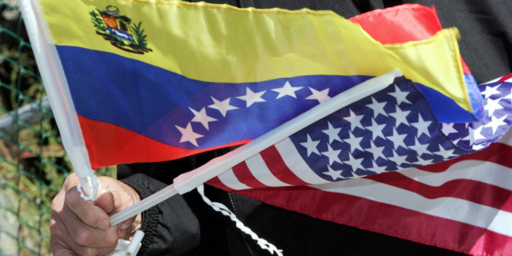
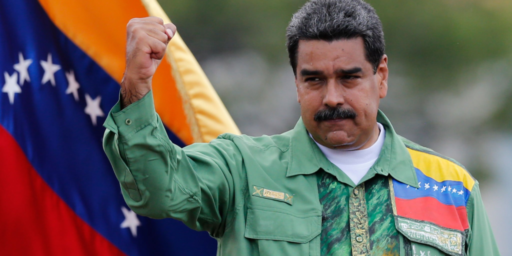
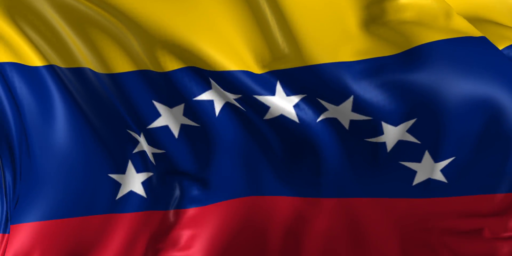
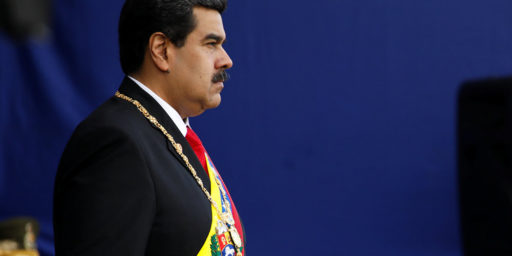
Meaning Trump must think he can not only do that, but do it much better than anyone else in the history of the world could have done it. And he should be able to do it by tomorrow before lunch.
Three mos from now: “The truth is, these aren’t very bright guys, and things got out of hand.”
Military intervention in Venezuela is so obviously a bad idea that no competent president would seriously consider it. Which means Trump will almost certainly do it.
Rule of Thumb: Never threaten to try to kill someone unless you aren’t bluffing.